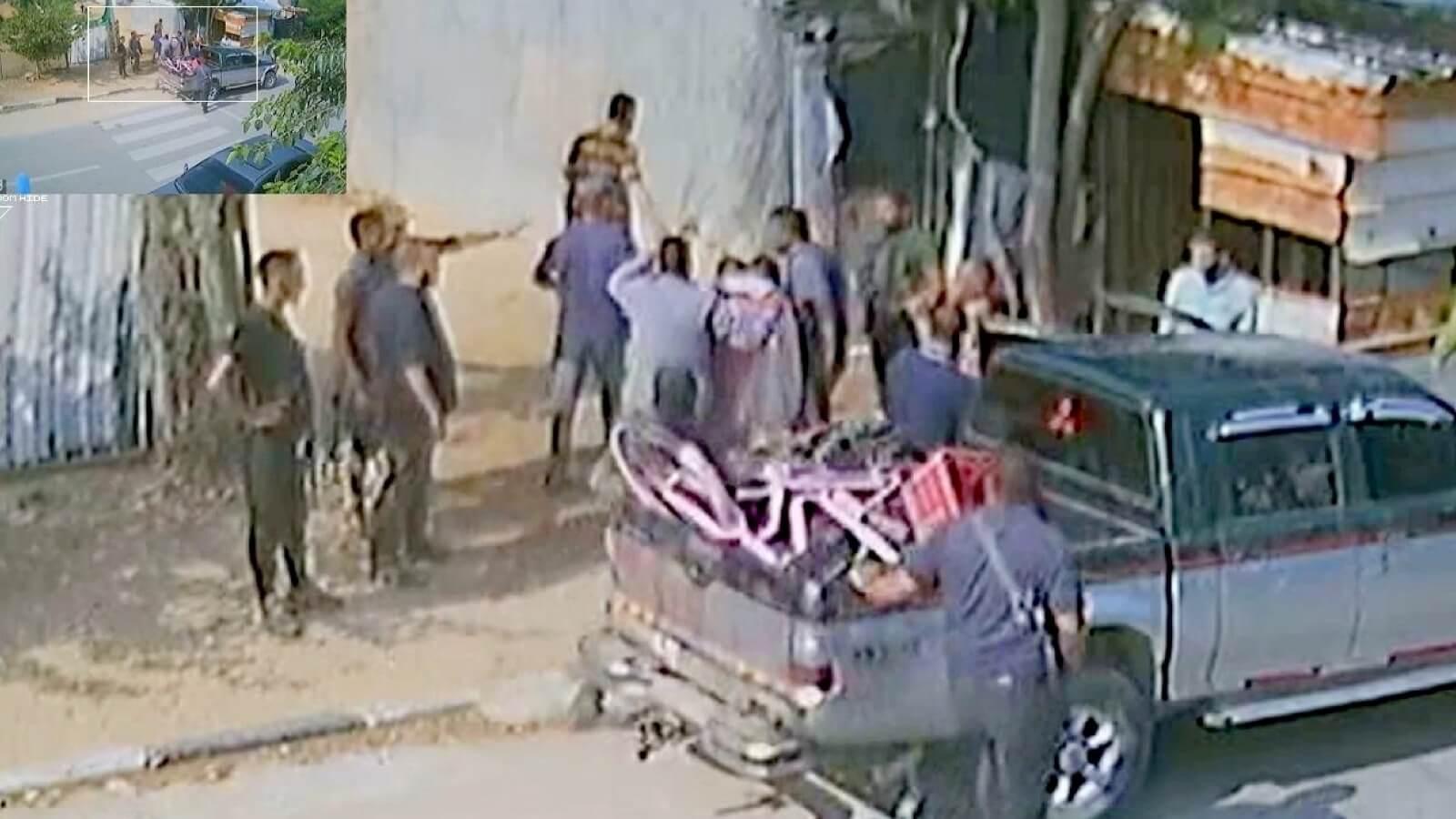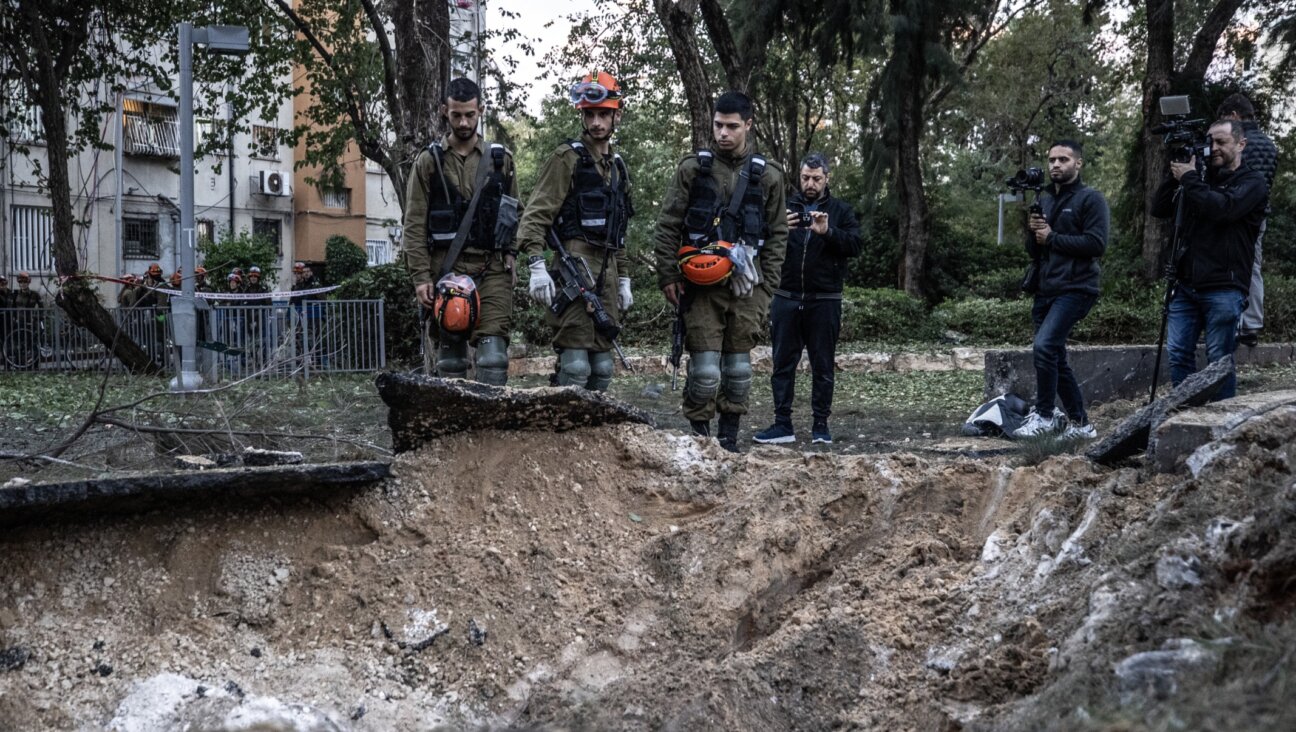Israeli army releases footage discovered in Gaza of abducted Bibas family
The IDF said it is concerned for the safety of the family, which has become a symbol of the effort to release the hostages

Footage from security cameras showing Hamas kidnappers transferring the Bibas family into a car on Oct. 7, 2023. Courtesy of IDF Spokesperson Unit
The Israeli army released on Monday footage of the abducted Bibas family arriving in Khan Younis, a city in southern Gaza, shortly after terrorists from Hamas kidnapped them on Oct. 7. The family and their two red-haired children — Ariel, 4, and Kfir, nine-months-old when he was taken as the youngest hostage — has become an international symbol of the effort to secure the release of the hostages.
The footage shows Shiri Bibas, 32, surrounded by armed individuals, being forced to cover herself with a cloth outside a military post belonging to the Mujahideen Brigades terror group. It shows her children hidden under the cloth and being forced into a vehicle.
The Israeli army released on Monday footage of the abducted Bibas family arriving in Gaza. The family and their two red-haired children have become an international symbol of the effort to secure the release of the hostages. Read the latest: https://t.co/ARuRVdb316 pic.twitter.com/TqsQCMIbQu
— The Forward (@jdforward) February 19, 2024
The chief IDF spokesperson, Rear Adm. Daniel Hagari, said forces obtained the video in recent weeks from surveillance cameras while operating in the area. The IDF first shared the footage with the family before releasing it to the public.
“Seeing this young mother, clutching her babies, surrounded by a group of armed terrorists is horrifying and heart-wrenching,” Hagari said, “but it is also a call for action, that we must bring the hostages home, fast.”
The fate of the Bibas family, including the father Yarden, who was kidnapped separately, remains uncertain. Hamas claimed in November that the kids were killed by IDF airstrikes. All of the other young hostages and their mothers were released during a 10-day ceasefire deal in November.
Hagari said the IDF is “very concerned about the condition and safety of Shiri and the children and are making every effort to obtain more information about their fate.”
Israeli Prime Minister Benjamin Netanyahu said in a video statement that Israel “will bring these kidnappers of babies and mothers to justice. They won’t get away with it.”
Representatives of the Bibas family said the images are “unbearable and inhumane” and that the release of the children should be “the first condition in any deal.”
A message from our Publisher & CEO Rachel Fishman Feddersen

I hope you appreciated this article. Before you go, I’d like to ask you to please support the Forward’s award-winning, nonprofit journalism during this critical time.
We’ve set a goal to raise $260,000 by December 31. That’s an ambitious goal, but one that will give us the resources we need to invest in the high quality news, opinion, analysis and cultural coverage that isn’t available anywhere else.
If you feel inspired to make an impact, now is the time to give something back. Join us as a member at your most generous level.
— Rachel Fishman Feddersen, Publisher and CEO




















